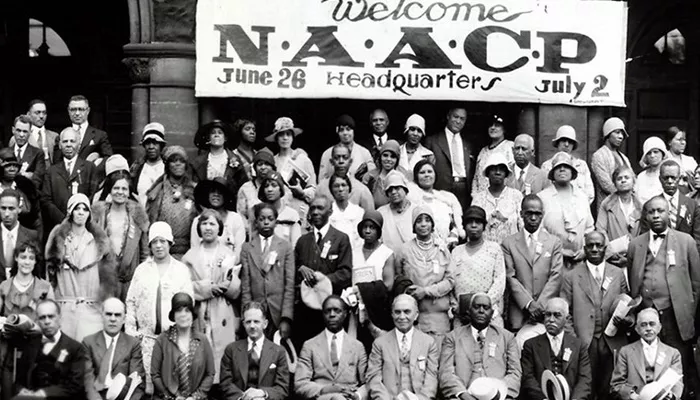February 12 has witnessed many pivotal moments in American history, ranging from the birth of influential leaders to the establishment of significant organizations. This article will explore key events that occurred on this day, providing a detailed account of their historical context and impact.
What Happened on February 12 in American History?
Birth of Abraham Lincoln (1809)
One of the most notable events on February 12 is the birth of Abraham Lincoln in 1809. Born in a one-room log cabin in LaRue County, Kentucky, Lincoln rose from humble beginnings to become the 16th President of the United States. His early life was marked by hardship; his mother died when he was just nine years old, and he received little formal education. However, Lincoln was an avid reader and self-taught, which laid the foundation for his future legal and political career.
Lincoln’s presidency (1861-1865) was defined by the American Civil War, a conflict that arose primarily over issues related to slavery and states’ rights. He is best remembered for his leadership during this tumultuous period and for issuing the Emancipation Proclamation in 1863, which declared that all enslaved people in Confederate-held territory were to be set free. Lincoln’s ability to communicate effectively and his commitment to preserving the Union were instrumental in shaping the nation’s future. He was assassinated in April 1865, shortly after the war’s conclusion, but his legacy as a champion of liberty and equality endures.
Birth of Charles Darwin (1809)
On the same day as Lincoln’s birth, Charles Darwin, the renowned British naturalist, was also born in 1809. Although Darwin is primarily known for his contributions to biology and evolution, his theories have had profound implications for various fields, including sociology and anthropology. His work “On the Origin of Species,” published in 1859, introduced the scientific theory of evolution by natural selection.
Darwin’s ideas challenged traditional views of creation and sparked significant debate within both scientific and religious communities. His emphasis on empirical evidence and observation laid the groundwork for modern biological sciences. While Darwin himself did not engage directly with American politics, his theories influenced various social movements, including those advocating for civil rights and social justice.
Founding of the NAACP (1909)
February 12 also marks the founding of the National Association for the Advancement of Colored People (NAACP) in 1909. This organization emerged in response to racial discrimination and violence against African Americans, particularly following incidents such as the lynching of African Americans in the early 20th century. The NAACP aimed to secure equal rights through legal challenges, advocacy, and public education。
The founding members included prominent figures such as W.E.B. Du Bois and Ida B. Wells, who played critical roles in civil rights activism. The NAACP has since become one of the oldest and most influential civil rights organizations in America, advocating for legislative reforms and social justice initiatives throughout its history. Its efforts contributed significantly to landmark achievements such as the Brown v. Board of Education decision in 1954, which declared racial segregation in public schools unconstitutional.
Abdication of Puyi (1912)
Another significant event on February 12 is the abdication of Puyi, the last Emperor of China, in 1912. Puyi’s reign began when he was just six years old; however, he was ultimately forced to abdicate following a revolution that led to the establishment of a republic in China. His abdication marked the end of over two thousand years of imperial rule。
Puyi’s life after abdication was tumultuous; he lived under various regimes, including a brief restoration during Japan’s occupation of Manchuria. He later became a puppet ruler under Japanese control before being captured by Soviet forces at the end of World War II. Puyi’s story reflects broader themes of change and upheaval during a critical period in Chinese history.
The USS Macon Disaster (1935)
On February 12, 1935, USS Macon, a helium-filled airship operated by the United States Navy, met with disaster when it crashed into the Pacific Ocean off California’s coast. The Macon was designed as an airborne aircraft carrier that could launch and recover fighter planes while aloft. However, structural weaknesses led to its downfall during a storm。
The crash resulted in significant loss; two crew members died while others were rescued by nearby vessels. The incident highlighted both the potential and limitations of airship technology during this era. Following this disaster, naval aviation shifted focus towards heavier-than-air craft rather than lighter-than-air vehicles like airships.
Civil Rights Movement: Isaac Woodard Incident (1946)
A pivotal moment related to civil rights occurred on February 12, 1946, when Isaac Woodard, an African American veteran returning from World War II, was brutally beaten by police officers in South Carolina after being removed from a bus for asking to use a restroom. The attack left him blind and sparked outrage across the nation.
Woodard’s case became emblematic of racial violence against African Americans post-war and galvanized support for civil rights reforms. It drew national attention to issues surrounding racial discrimination and police brutality, contributing to momentum for future civil rights movements throughout the late 1940s and into the 1960s.
Conclusion
February 12 has been a significant date throughout American history for various reasons—most notably through notable births like Abraham Lincoln and Charles Darwin, foundational events like the establishment of the NAACP, critical historical moments such as Puyi’s abdication, technological disasters like that of USS Macon, and impactful incidents like Isaac Woodard’s assault.These events collectively illustrate how February 12 serves as a reminder of both progress and ongoing struggles within American society.
Each occurrence on this day has contributed uniquely to shaping historical narratives that continue to resonate today.This exploration highlights how history is often intertwined with personal stories and broader societal changes—demonstrating that each date holds its own significance shaped by human experiences across time. This article can be expanded further with additional details about each event or by including more events from different years if required to meet specific word count goals or thematic focuses within American history on February 12.
Related Topics:

